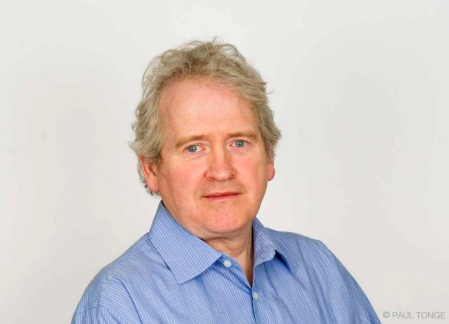Almost 100 people joined for the final Suicide Prevention Advisory Network (SPAN) meeting of 2023 – with talks focusing on suicide risk among older people, self-harm and the impact of childlessness on men’s mental health. 
The meeting saw expert speakers share their work and take questions from members throughout the three-hour online learning and sharing forum, which occurs quarterly for members of the Suicide Prevention Advisory Network and Suicide Prevention Champions who have opted to attend.
Alison Iliff, pictured right, health and wellbeing programme lead for North East and Yorkshire at the Office for Health Improvement and Disparities (OHID) was first to share her work and findings on suicide and self-harm in adults.
She explained that, while members of the older population are just as likely to experience poor mental health as other age groups, they are less likely to be diagnosed or to be offered the full range of treatments.
“We need to make sure we are doing what we can to make life better in terms of older adults’ mental wellbeing and to make sure we’re much better at recognising, diagnosing and treating it,” she said.
Suicide rate data shows older old men are a high-risk population for suicide, with men aged 85+ showing a similar rate of death by suicide as men in their late 20s and Alison explored risk factors including psychiatric illnesses, deterioration of physical health, pain, stressful life events and financial problems.
She stressed ‘social connectedness’ was a particularly key factor for older adults; to “feel that they belong and still have value” and providing opportunities for this was important in maintaining mental wellbeing in later life.
On self-harm, Alison explained that while rates of self-harm in older adults are lower, studies have shown a stronger suicidal intent in older adults who self-harm and that self-harm is more often fatal.
She also talked about the recent publication of a new resource which aims to prevent suicide in care home settings.
Dr Robin Hadley, pictured right, an expert in male involuntary childlessness – where men are childless through circumstance rather than choice – hosted a talk exploring the impact of this on mental health and suicide risk. 
His 2009 study on broodiness among men found 51.9% of childless men indicated a desire for parenthood and that non-parent men scored higher for depression, isolation and anger than fathers.
He cited international studies which also found older childless adults have an increased risk of loneliness, social isolation, depression and ill-health and that childless men and non-contact fathers have been found to have higher mortality through suicide, risky health and social behaviours than comparable fathers - and that researchers had suggested becoming a parent could put a break on those risky behaviours.
He said: “Circumstantial childless is a disenfranchised grief where some losses are not socially valid,” and called for older childless men to be recognised in health and social care.
Final speaker of the afternoon was Jenny Groves, founder and CEO of self-harm charity Battle Scars who explained her thoughts on the intricate relationship between self-harm and suicide.
She said self-harm can take many forms and the definition the charity uses is of “any harm to the body or mind, external or internal, with short or long-term effect”.
She said any statistics around self-harm tend to be “incredibly inaccurate” and one statistic, that 50 per cent of young people who die by suicide had a history of self-harm, is often wrongly misinterpreted as 50 per cent of young people who self-harm will die by suicide.
“This causes panic and fear,” she said, adding: “The majority of people who self-harm are not at risk of suicide.”
Jenny stressed that self-harm does not link to suicide – rather that both “link to the root of the problem, but not to each other”.
She urged people not to be afraid of having open conversations about self-harm and said: “Self-harm isn’t something to be ashamed of; nobody should be ashamed for trying to survive and manage life.”
Resources from November SPAN speakers:
Suicide and self-harm in older adults: Alison Iliff, OHID health and wellbeing programme lead, North East and Yorkshire
Webinar: Webinar: Suicide and self-harm in older adults - YouTube
Slides: Suicide and self-harm in older adults
Care home resource: Promoting Emotional Health and Wellbeing and Preventing Suicide: A resource for Care Home Settings
Male childless and suicide risk: Dr Robin Hadley, researcher and author
Webinar: Webinar: Male childlessness and suicide risk - YouTube
Slides: Male childlessness and suicide risk
Book: How is a man supposed to be a man? Male childlessness - a life course disrupted
Does self-harm link to suicide? Jenny Groves, CEO and founder, Battle Scars
Webinar: Webinar: Does self-harm link to suicide? - YouTube
Slides: Does self-harm link to suicide?
